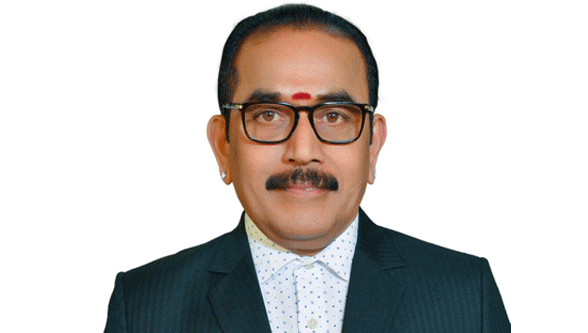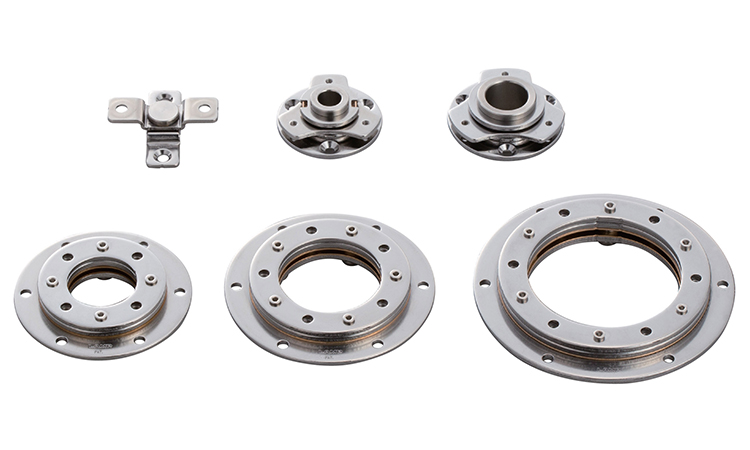Sugatsune introduces Swivel Torque Hinge HG-S for smooth…

The Indian tooling industry is in a high growth phase | ENGINEERING REVIEW |Manufacturing | Industrial Sector Magazine & Portal
What are the current trends in the Indian Tooling industry?
The Indian tooling industry is in a high growth phase, and I expect this to continue in the coming days as well. After the challenging COVID-19 time, I see the following trends emerging in the industry:
- Diversification: Global tooling industry is highly dependent on the automotive sector and the scenario is no different in India as well. With the emergence of many sectors in India, I see tooling companies diversifying to other sectors as well to mitigate the risk and expand the business.
- Digitation: After the pandemic when there were lockdowns, we all saw what benefits digital solutions can bring. I see, tooling companies adopting more and more digital solutions for their business operations.
- Skill development: Customers are becoming demanding with every passing day and to cater to the demand we have to keep ourselves updated with the latest technologies and skills.
- Technology adoption: Now, many Indian companies are serving global customers that demand high precision and fast turnaround and to meet those requirements we must adopt the latest technologies.
What are the various challenges faced by the Indian tool makers?
There are currently 6 major obstacles that are impeding the growth of Indian tool rooms:
- Indian tool makers face many challenges concerning easy access to finance.
- It is observed that the import duty on the tools is lower than the import duty on the raw materials and bought-out components used in manufacturing these tools.
- Duty-free moulds import from certain countries such as S Korea
- Toolmakers in other countries receive state-sponsored incentives to explore export markets but that is not the case in India.
- In India, there is a severe lack of skilled workforce available for employment in tool rooms
- Lack of outsourcing ecosystem
What policy supports Indian tooling companies need from the government?
Since the last few years, there has been good improvement in terms of ease of doing business and many campaigns such as ‘Make in India’, ‘Atma-nirbhar Bharat’ and PLI schemes on various industries are generating good business for domestic players.
However, we still need a long way to cover to get to the level of countries like China and Taiwan. Some of the key elements such as tool steel and 5-axis machines are all imported in India, as we do not have Indian alternatives, have high import duty. Apart from this machine and land finance for the expansion of the business is also very high. Tooling is a very capital-intensive business and to attract more players in the industry we must make the business environment more conducive.
What would be the key highlights of the 12th Die & Mould India International Exhibition?
First, the exhibition is happening after a gap of four years and exhibitors and visitors are eagerly waiting for the show, thus we are very much confident of the success of the show. Some of the highlights would be:
- Over 50 delegations from the OEMs and Public sectors
- Latest technology in the display such as additive manufacturing, integrated CAD/CAM software, multi-axis CNC machines, latest injection moulding machines and industry4.0 solutions
- Over 15 user industry associations to explore business opportunities with toolmakers
- B2B pavilion for buyer and seller meet
What latest technologies would be exhibited in Die Moudla India 2022?
Looking at the exhibitor count and the kind of companies we are having at this edition of DMI, I have a feeling that we are going to witness some of the latest technologies in the field of tool making. At this edition of DMI, we will have the latest 5-axis CNC machines equipped with industry4.0 features; injection moulding machines; cutting tools with new geometries; the latest software for design, manufacturing & simulation and not to forget additive manufacturing solutions.
In the Indian manufacturing space, the scenario has changed drastically in the last few years. With the presence of many global brands in India, the expectation level from customers has increased in terms of speed and accuracy. To cater to such demand, toolmakers have no option but to adopt the latest technologies. I see companies are adopting best-in-class machines and software.









